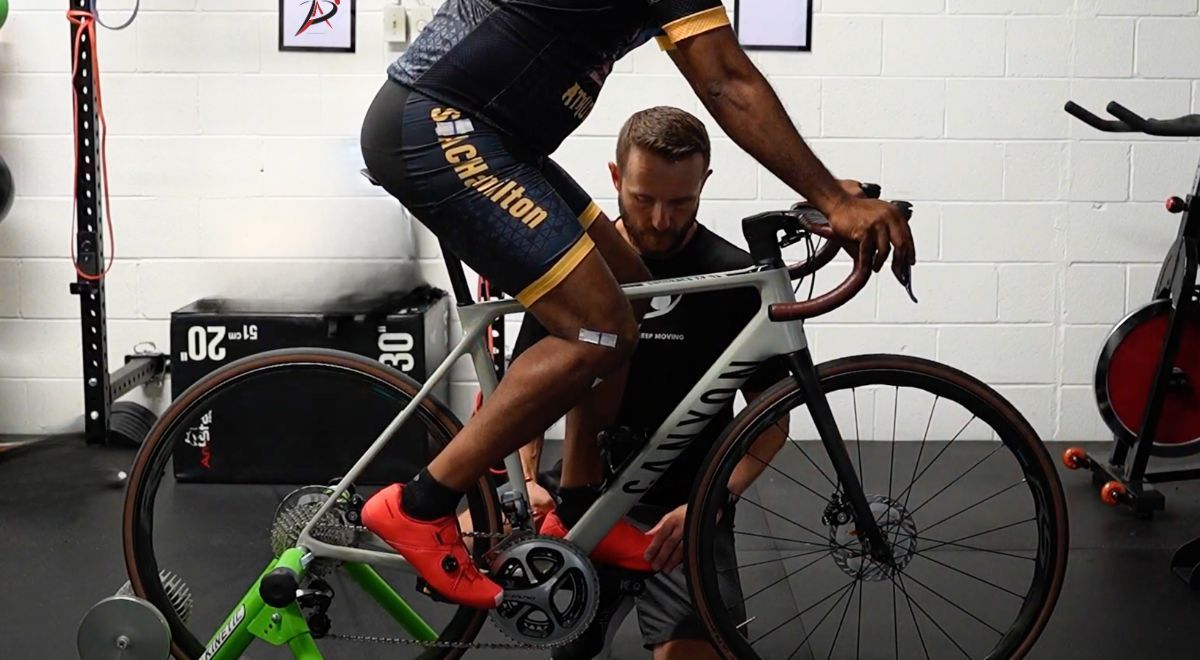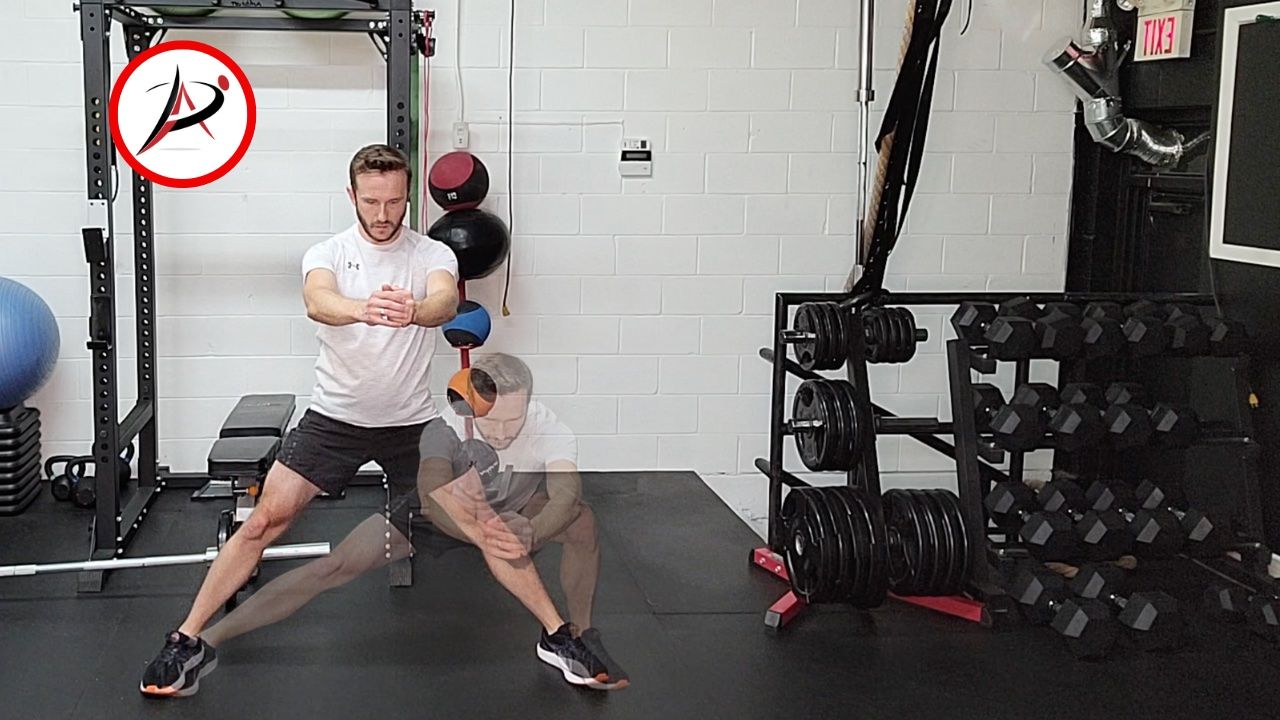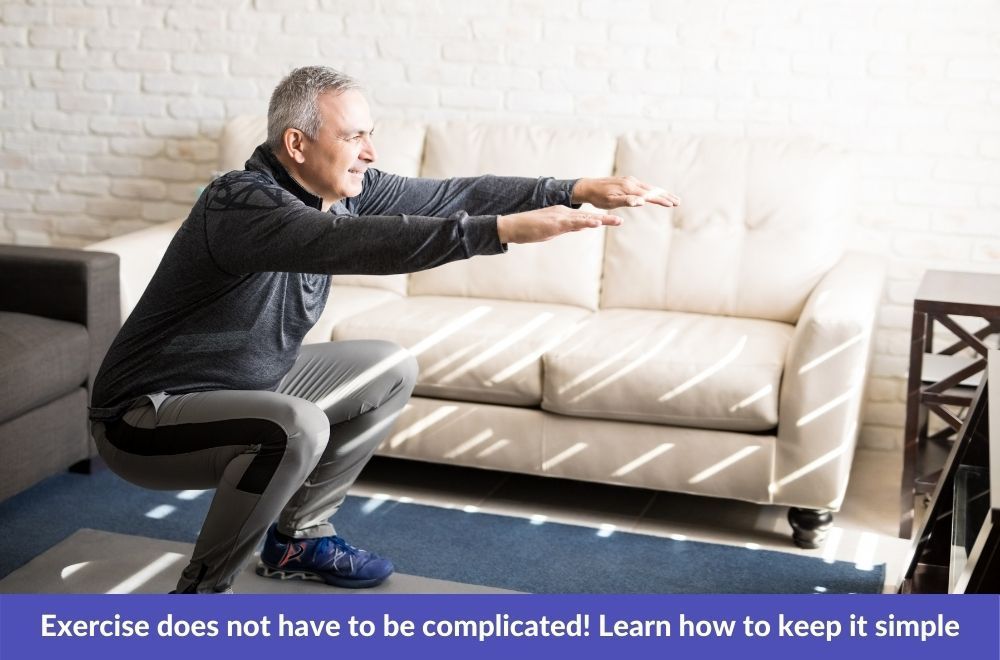Why You Should Likely Eat More Protein
The Importance of Protein in Health
Many people believe that they are getting enough protein in their diet, but new scientific evidence shows otherwise. This evidence indicates that we should be eating more protein than we currently are and more than what is recommended in Canada’s dietary guidelines. If you’re trying to remain fit and healthy, then focus on eating more protein because it will assist you in achieving your goals! Eating protein is also important if you are trying to lose weight, suffer from chronic pain or illness, or are getting older.
For anyone who has been a patient of mine, you have most definitely heard a few rants about the importance of protein in a healthy diet.
This article is a more structured and in-depth look into protein and why you must get enough of it. You will find that the underlying theme of this article is the importance of muscle and the role it plays in living a long and healthy life.
What is Protein?
Protein is one of three macronutrients you take in through your foods. The other two are carbohydrates and fats. Your body can use all three macronutrients for energy — carbohydrates are heavily involved in producing energy while fats play a role in your body’s energy storage.
The majority of our body’s functional and structural parts are comprised of protein.
Hormones and enzymes are examples of proteins that carry out functions in our bodies. Proteins are also responsible for forming cell walls and components, which support beams to hold our cells together and form tissues and organs. Protein can be found throughout our whole body, including our blood, bone and skin, with a large portion of the protein found in our body being stored in muscle.
How Eating Protein Influences Your Muscle
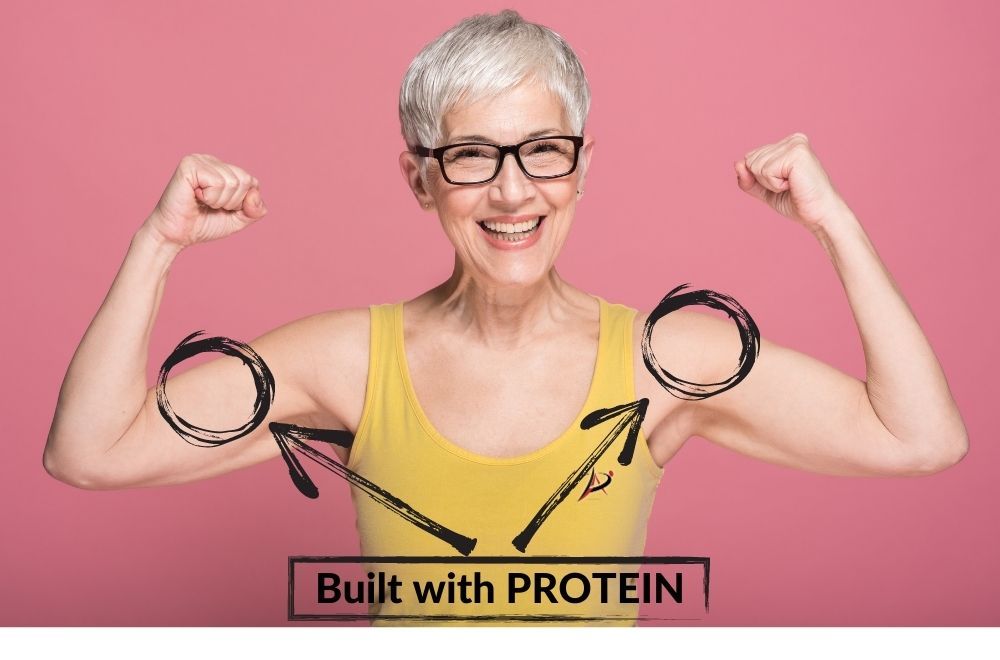
Now that we know how abundant protein is in our body let’s look at how it affects our muscles. After you ingest protein, your gut breaks it down into amino acids, which are essential protein molecules. The amino acids then get absorbed into the bloodstream before finding a home in tissue that requires building or repair.
The muscles in our body are the largest deposit sites for amino acids for a few reasons. Muscles are tasked with performing several crucial functions, continually being broken down and reconstructed. An interesting fact about our body and protein is that we don’t keep a reserve of it around for when we need it the most. The protein we take in through our diet is the only way to get this vital component to our muscles, and our muscles crave protein.
Our muscles require protein for maintenance as well as growth. So much so that researchers have shown that the simple act of eating a protein-rich meal produces a brief yet large burst of muscle anabolism (growth) following the meal. This research shows that when our body senses that a meal we have eaten contains a large amount of protein, it goes to work and starts to build muscle.
I am writing this article to showcase how the consumption of protein in our diet can directly impact the amount and quality of the muscle we keep. Remember this critical piece of information as you read through the rest of the article. But, before I try and persuade you to take in more protein, let me tell you why muscle is so significant.
The Importance of Muscle
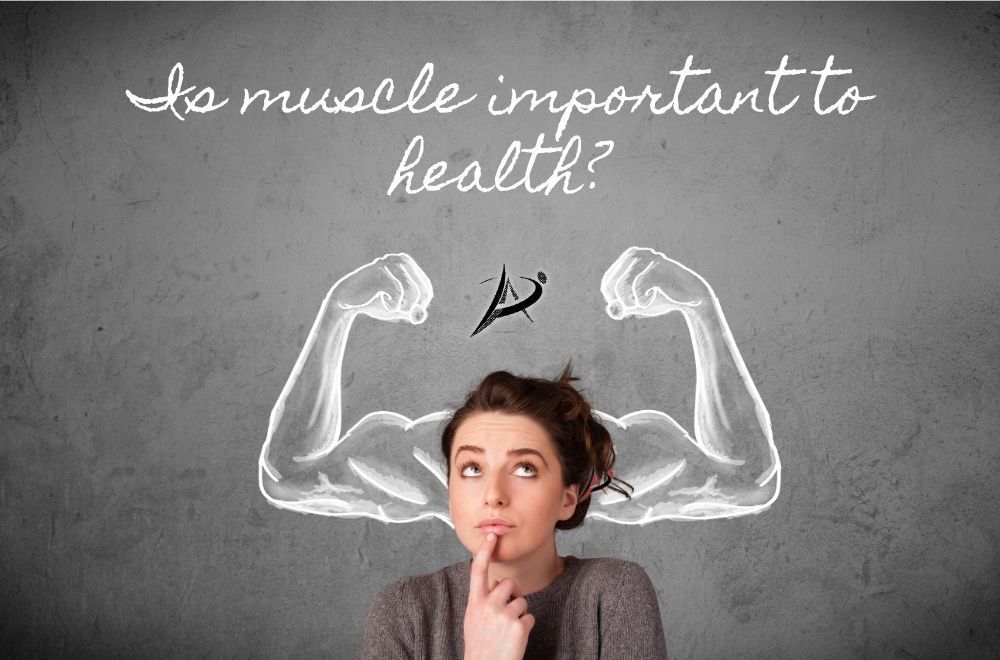
The muscles in our bodies constantly fluctuate between breakdown (loss) and synthesis (gain). Whatever way the balance tilts determines if we gain or lose muscle. The obvious goal is to acquire muscle and keep it. Having muscle is important because it allows your body to perform its necessary mechanical and metabolic tasks.
Muscle is also essential because it plays a critical role in our mobility and our overall quality of life. But what may be less understood is the link between the health of our bones and joints and the quality of muscle and size that we maintain. We can help fight off chronic pain and illness by maintaining optimal muscle. Sustaining enough muscle can also help us avoid the fragility that can come with old age and help preserve our independence .
Muscle also plays a substantial role in how our bodies metabolize energy. The more muscle we have, the more energy we burn even as we rest. Also, since about 80% of the sugar we digest from our diet ends up in our muscles, it plays a central role in keeping our blood sugar stable. This helps avoid spikes that can lead to insulin insensitivity and, possibly over time, diabetes.
Unfortunately, individuals who lack muscle are at a much higher risk for various conditions related to metabolic dysfunction. These conditions include metabolic syndrome, obesity, type 2 diabetes, cardiovascular disease, and cancer. Overall, this can lead a person to live a shorter life complicated by health concerns.
The main point to remember is that to live a long, happy, and healthy life, you need to optimize the quality and amount of muscle you have in your body, but some scenarios favour muscle loss over muscle gain. Let ’ s take a closer look at what these scenarios are.
Situations That Favour Muscle Loss
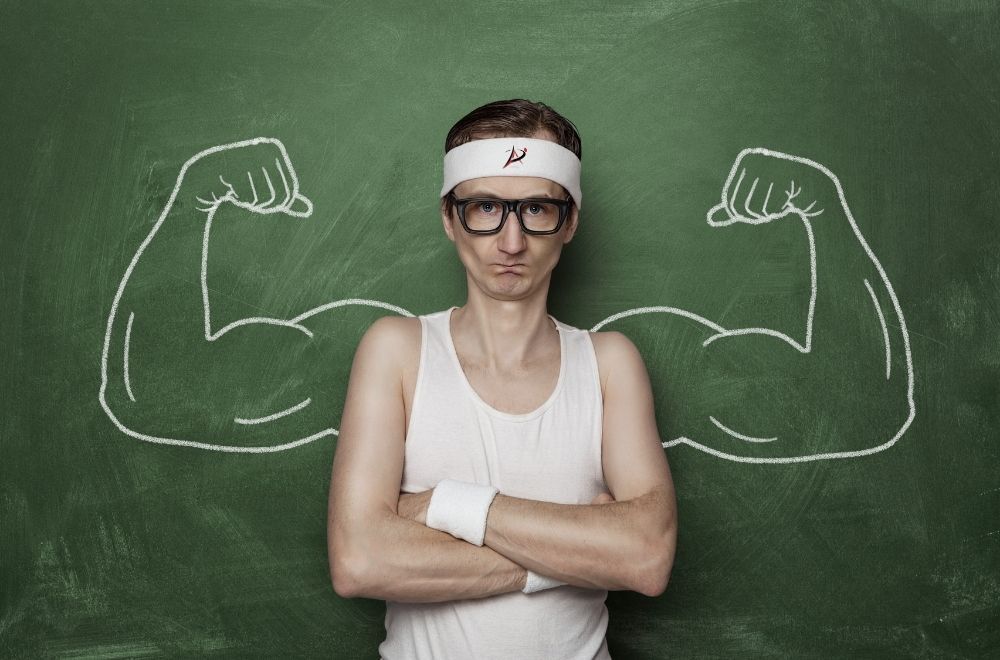
It’s a constant challenge and struggle to hold on to quality muscle. It can often seem like an uphill battle, but there are a few main reasons people lose muscle more than they keep it.
They Aren’t Active Enough Exercise
I’m sure we’ve all heard the line “use it or lose it,” which is especially true in terms of your muscle. Muscle is one of the most adaptive tissues we have throughout our bodies. Our muscles are perpetually changing based on the demands we make of them. If we stop demanding our muscles to work, they will go away. But just how fast can this happen?
A recent experiment showed that just five days of inactivity resulted in around 3.5% of leg muscle mass, representing about 150-gram loss of lean muscle tissue. The loss in muscle size also resulted in a 9% loss in muscle strength.
A similar study showed correlated results. A two-week reduction (75%) in steps taken during the day was enough to see a 4% loss of muscle in the legs. The study subjects’ decreased activity was also enough to throw them into a pre-diabetic state and a slight increase in inflammation throughout the body.
Both of these studies show that even a short period of inactivity can have massive results. To go with muscle loss, a lack of activity can also cause our bodies to become less sensitive to foods high in protein, limiting the anabolic response. The same two-week study also saw a 26% reduction in this anabolic effect in the study subjects.
Now, both of these studies were short-term. The degeneration of muscle and the anabolic response worsens with an extended period of inactivity. If a person has had surgery, battled an illness, or suffered a severe injury, these results only get grimmer. If you’re someone who lived an active lifestyle and then went through one of these scenarios, you can attest to how quickly muscle can go away.
To maintain the muscles in your body, you need to move and push against resistance.
Resistance exercise is THE most effective stimulus for muscle synthesis, and it’s essential if you want to grow or retain your muscle.
Their Diet Stinks (not enough protein)
As stated earlier, protein is a vital element of all body tissues. These tissues are constantly rebuilding, and this is especially true in muscle. Also, unlike carbs and fats, our bodies can’t store amino acids (proteins). Our body can make some of them but not all of them. When we exercise, we use our muscles. They naturally break down and then rebuild. If we don’t have the proper protein transfer from our diet, the muscle breakdown will exceed the rebuild, and we begin to lose muscle.
So how can we help tip the scale towards building muscle and not losing it? We have to eat a healthy diet filled with protein. It’s been scientifically shown that people who eat high-protein diets have more lean muscle and strength. This can be mainly seen in older adults. Seniors who have low-protein diets have a higher rate of disabilities compared to others with protein-rich meals multiple times a day.
All this evidence shines a light on how critical it is to eat a diet filled with protein, and if we fail to do so, we miss crucial windows of opportunity to help increase muscle synthesis and lower the chances of muscle loss.
They’re Getting Older
Getting older is a part of the circle of life, and it brings with it a steady decline in many bodily functions. A big element of this is muscle loss. The term sarcopenia describes the age-related degeneration of muscle mass and function. The issue can come on quickly and carries dire health-related effects.
Although it may seem like sarcopenia is something that you don ’ t have to worry about until you ’ re older, you may be surprised to learn that it can affect people who are in their early 30s. Those suffering from sarcopenia will start to see a yearly average loss of roughly 0.8% of muscle mass. By the time you hit your 60s, you could be seeing an annual muscle loss of close to 3% due to sarcopenia.
Over time, as sarcopenia alters the composition of your muscles, the decline in muscle strength typically comes on more drastically than in muscle mass. This decline can have severe consequences on the overall health of your bones and joints , which in turn severely modifies your way of life.
To help fight against the threat of sarcopenia, there are two things you can do. Resistance exercise and getting the right amount of quality protein in your diet are your two best weapons. When I say the right amount, I stress that the protein you need changes as you age. As we age, the general anabolic response to eating protein gets weakened.
The weakening of this response is called “ anabolic resistance ,” To fight against it, it would require an older adult of 65 years of age or older to eat almost twice more protein than an adult aged 18-37. To add to the weakening of this response, we also have digestive issues that arise as we get older. These problems can also result in how our body absorbs proteins, which means we need to eat even more protein as we age to compensate for these physical challenges.
So, now that we know what hinders muscle growth let’s take a look at what helps it.
Situations That Favour Muscle Gain

It’s easier to lose muscle than to maintain it, but you can do a few things to help encourage muscle growth. The most potent ways to garner muscle growth are:
- performing resistance exercises, and
- eat enough quality protein
Use Resistance Exercise
Regular exercise, yoga, and walks are fantastic ways to stay in shape and be healthy, but you need resistance exercises to get the results your body needs and deserves. The best way to maintain muscle is to perform resistance exercises regularly. Resistance exercises help trigger our body to synthesize muscle right away. It also puts the exercises muscle in an extended anabolic state, which can last for several days .
Resistance training doesn’t have to be complicated to do its job. You don’t need expensive equipment or to lift heavy weights. You just need exercises that utilize the weight of your body until the muscles become fatigued (less weight but more repetitions), and that is enough to help grow muscle and produce strength gains.
Remember to keep it simple but be consistent with your resistance exercises.
Want an example of an easy at-home workout ? Watch the video below!
Oh… and eat your protein .
Eating enough quality protein
It may have taken a while to get here, but now let’s get to the main focus of this article. As you can see by reading this, I wholeheartedly believe that everyone should be eating more protein. Let me drive this point home with a few more paragraphs.
Do you think you’re getting enough protein?
Whether you answered yes or no to this question, the word enough differs from person to person. The real question is could you benefit from eating more protein? About 0.8 grams of protein per kilogram of body weight is the Recommended Daily Allowance (RDA) for an adult’s daily protein intake. These values are intended to meet the basic needs of a healthy adult.
The suggested intake of protein is set to help avoid malnutrition, but should the goal of staying healthy be to prevent malnutrition? Not at all! The goal is to optimize and be as healthy as possible. This means using your protein intake to build and keep muscle mass. Studies have shown that the anabolic effect in muscles after eating a meal containing protein increases progressively the higher the quantity of protein is in the meal.
But this “dose-response” does have a limit.
A healthy “average” individual in their mid-20s who eats 20 grams of protein in a single meal will take full advantage of the anabolic effect of eating protein and maximize their muscle synthesis. But for healthy older people, a much larger dose of protein would be needed at mealtime to have the same anabolic outcome.
A pivotal study showcased that older people are less responsive to protein intake. The study showed that for both younger and older participants to reach a similar maximal level of muscle synthesis from their meals, participants over 65 had to ingest 0.40g/kg of body weight while the younger participants saw the same effects with an average protein meal of 0.24/kg of their body weight.
Although these numbers may seem remarkable, they don’t tell the whole story.
The authors of the study point out that the recommendations to stimulate muscle synthesis with ingested protein to maximum levels may even be higher in some people since:
- All test subjects were considered healthy when they took part in the study. Less healthy people need to consume more protein
- The proteins given to the participants were high quality, animal-based, and highly digestible. People who get their protein from other sources, such as plants, will need to eat more to get a similar anabolic response.
- All recommendations quoted are AVERAGES, and for some people to get the same maximum muscle synthesis, they may have to ingest up to 0.60g/kg if they are older and up to 0.40g/kg if they are younger.
Do You Still Think You Are Eating Enough Protein?

To sum it up – muscle is vital! We now know that it is very easy to lose muscle for various reasons. Lucky for us, though, as we have two effective ways to build and maintain muscle. One low-hanging fruit is to simply eat enough quality protein.
Although these solutions can seem overwhelming, they are a small price to pay for being stronger, retaining pain-free bodily functions, and preventing chronic diseases.




